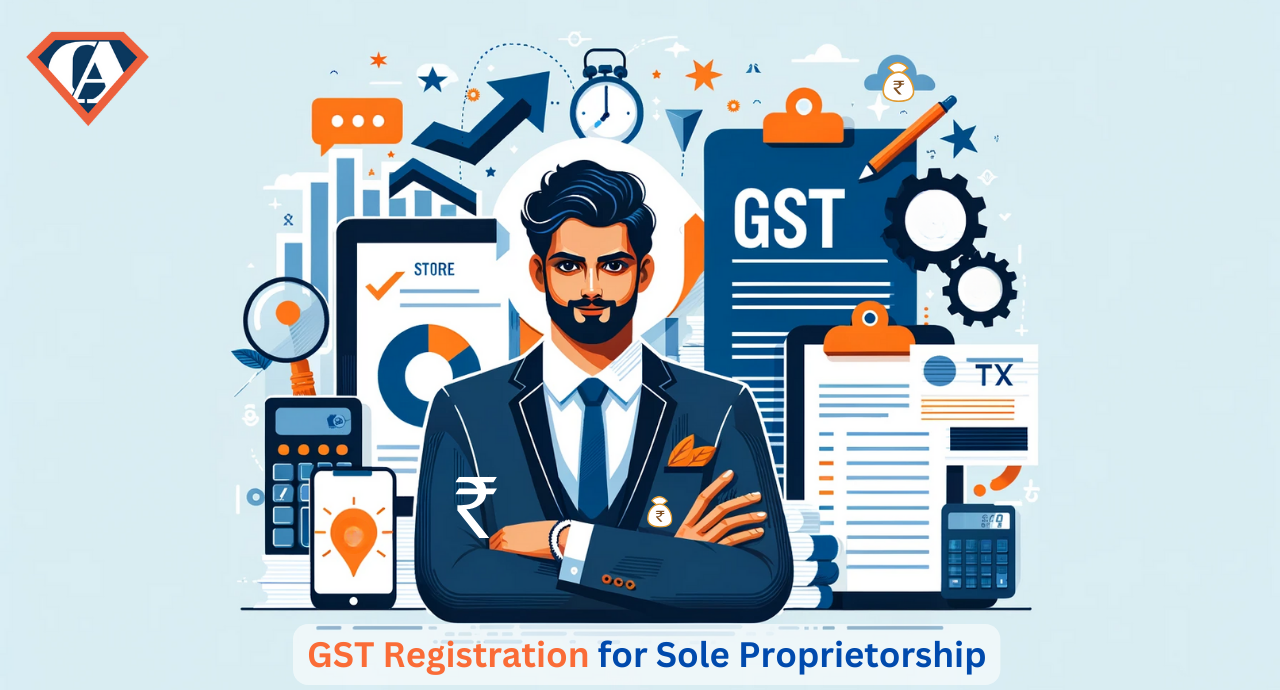How to Navigate Singapore GST Registration for Your Business
How to Navigate Singapore GST Registration for Your Business
Blog Article
Navigating the Complexities of GST Enrollment: Expert Tips and Ideal Practices for Smoother Conformity
Browsing the elaborate landscape of Item and Solutions Tax Obligation (GST) enrollment demands a keen understanding of the evolving regulatory structure and thorough interest to information. As companies aim to make certain compliance and avoid challenges, expert support and ideal techniques can function as vital compass factors in this facility surface. From figuring out enrollment requirements to utilizing technological tools for streamlined processes, the journey in the direction of smoother GST conformity is multifaceted and nuanced. Stay tuned to uncover vital methods and understandings that can aid businesses steer through the complexities of GST registration with finesse and confidence.
Understanding GST Enrollment Requirements

In enhancement to turnover limits, businesses participating in interstate sales or supplying taxable solutions might likewise be required to sign up for GST, even if their turn over is below the prescribed restriction (Singapore GST Registration). Recognizing these requirements and limits is important to prevent penalties and make sure smooth operations within the lawful structure
In addition, services have to collect and prepare the required paperwork, such as proof of identification, address, service unification, and checking account details, prior to starting the GST registration procedure. Failing to give accurate details or fulfill the registration target dates can cause fines or other legal consequences. For that reason, businesses need to stay educated concerning the particular GST enrollment requirements relevant to their operations to maintain compliance and avoid possible issues.
Organizing Crucial Documentation
Companies starting the GST enrollment process should thoroughly assemble and organize the essential documents required for entry. The crucial documents generally needed for GST registration consist of proof of company registration or address, identity and consolidation proofs of the organization owners or companions, checking account information, evidence of major area of organization, and consent kinds. Making certain that these records are conveniently available and arranged can simplify the enrollment procedure and avoid denials or hold-ups.
To successfully arrange necessary documents, businesses should develop a central system for storing and categorizing the required paperwork (Singapore GST Registration). Utilizing digital storage space remedies can help preserve simple access and guarantee that documents are firmly kept. Additionally, establishing a list of all needed files can act as a valuable tool to track what has been collected and what is still needed for submission

Leveraging Modern Technology for Effectiveness
Enhancing functional effectiveness through technological assimilation is paramount for modern organizations browsing the complexities of GST registration. Leveraging modern technology can simplify processes, reduce mistakes, and make sure prompt compliance with GST regulations. Among the essential ways technology can assist in GST registration is through making use of automated software program remedies. These tools can help organizations track sales, produce invoices, compute taxes, and submit returns properly. By automating these tasks, organizations can reduce hand-operated errors and conserve time that would otherwise be invested in recurring management work.
In addition, technology can promote seamless communication with tax authorities. On-line websites and interaction devices allow companies to send records, fix questions, and receive updates in a much more effective fashion. This not just speeds up the enrollment procedure but also assists in keeping reliable and transparent interaction Go Here with the appropriate authorities.
Moreover, cloud-based storage space remedies provide a secure platform for services to shop and accessibility their economic data, making certain conformity with GST record-keeping needs. By centralizing information storage space and automating procedures, organizations can boost their total performance and precision in GST enrollment treatments.
Proactive Conformity Surveillance

To make sure efficient positive conformity tracking, companies ought to develop durable interior controls, conduct periodic audits, and take advantage of automation tools for real-time monitoring of GST purchases. Routine training sessions for employees on GST conformity requirements can likewise help in developing a culture of conformity within the organization. In addition, involving with tax obligation experts or professionals can give useful insights and guidance on browsing intricate GST policies.
Involving With Professional Specialists
Involving seasoned tax obligation consultants can dramatically boost a company's understanding and compliance with detailed GST regulations. Professional experts bring a wide range of knowledge and experience to the table, assisting organizations navigate the complexities of GST enrollment easily. By leveraging their competence, firms can guarantee accurate filings, lessen the threat of errors, and stay up-to-date with the most recent regulative modifications.
When engaging with expert specialists, it is necessary to pick professionals with a strong performance history in GST conformity (Singapore GST Registration). Look for specialists that have a like this deep understanding of the appropriate regulations and laws, along with experience collaborating with companies in your market. Efficient communication is vital in this partnership, so see to it to clearly define your expectations and establish routine touchpoints to go over progress and address any type of issues
Moreover, professional professionals can provide valuable insights and guidance on enhancing your tax strategy, identifying possible cost-saving possibilities, and streamlining your compliance procedures. On the whole, spending in specialist working as a consultant services can go a long means in ensuring smoother GST compliance and avoiding pricey mistakes.
Final Thought
Finally, navigating the complexities of GST enrollment needs a thorough see it here understanding of the requirements, organization of essential documents, leveraging innovation for effectiveness, proactive conformity tracking, and engagement with specialist specialists. By following these best techniques, services can guarantee smoother conformity with GST policies and avoid potential charges or fines. It is important to remain informed, proactive, and attentive in handling GST enrollment to maintain conformity and support financial stability.
To ensure compliance with tax obligation policies, companies have to completely recognize the elaborate demands for GST enrollment. Goods and Solutions Tax (GST) is a value-added tax obligation levied on most items and solutions in a country, making it critical for companies to sign up for GST to prevent lawful repercussions.Additionally, organizations have to collect and prepare the essential documentation, such as proof of identification, address, organization unification, and bank account details, prior to launching the GST enrollment process. Organizations should stay notified concerning the specific GST enrollment requirements applicable to their procedures to keep compliance and stay clear of possible problems.
The key files commonly needed for GST registration include evidence of service enrollment or address, identity and incorporation proofs of the business proprietors or companions, financial institution account information, proof of primary area of organization, and consent kinds.
Report this page